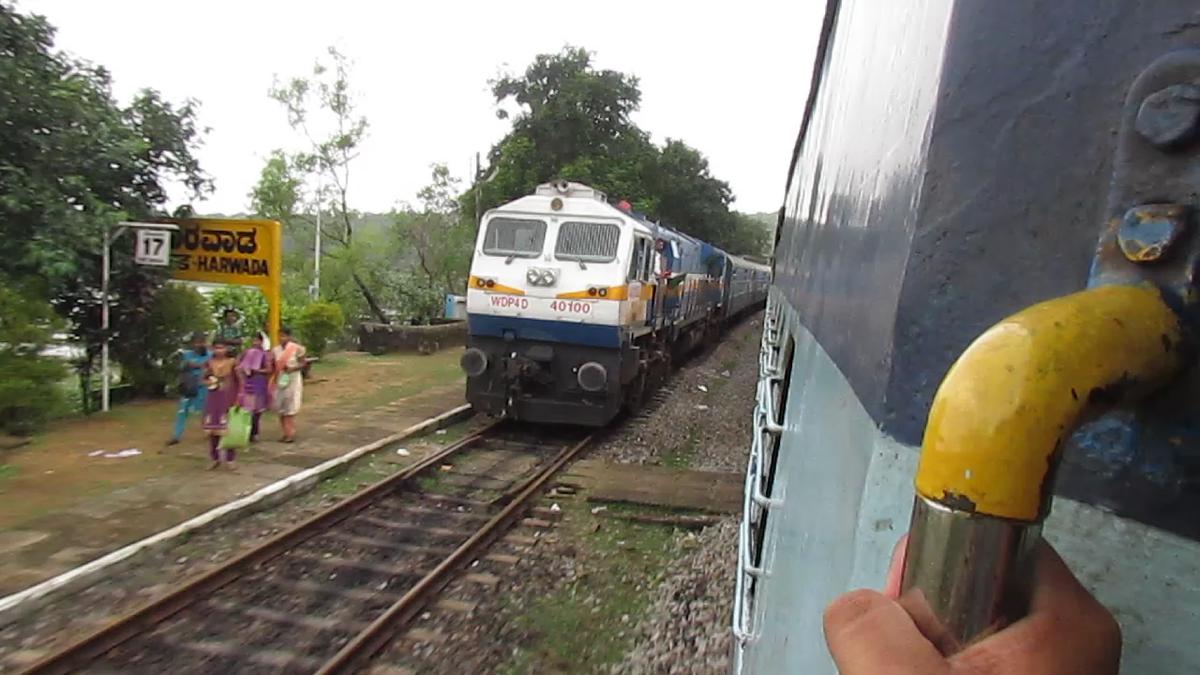Five years after a successful trial run, Kerala’s much-anticipated Roll-On Roll-Off (Ro-Ro) service remains in limbo, primarily due to the reluctance of the Southern Railway to implement the crucial freight transportation system. This delay stands in stark contrast to Konkan Railway’s proactive expansion and modernisation of its Ro-Ro services, particularly along the Mumbai-Mangaluru sector. The stalled progress in Kerala is hindering a significant opportunity to revolutionise freight movement, reduce environmental impact, and enhance the state’s logistical efficiency, especially with the recent commissioning of the Vizhinjam port.
Ro-Ro transportation, a highly efficient method of moving freight trucks (lorries) by loading them onto specially designed railway wagons, offers a multitude of benefits for modern urban and regional logistics. If fully operational in Kerala, this service could dramatically accelerate freight movement, alleviating the severe road congestion that plagues the state’s highways. Furthermore, it promises substantial reductions in diesel consumption and air pollution, directly contributing to the state’s agenda for zero net carbon and eco-friendly cities. The inherent safety advantages of rail transport also mean a lower risk of road accidents, enhancing overall public safety and reducing the human and economic toll of road mishaps.
The success of the trial run through Mangaluru in August 2020 unequivocally demonstrated the technical feasibility of Ro-Ro operations in the region. Currently, Konkan Railway effectively operates its Ro-Ro services along the 760-kilometre stretch between Kolad (Maharashtra) and Surathkal (Karnataka). It is particularly noteworthy that a significant volume of trucks unloaded at Surathkal are destined for various parts of Kerala, including Kollam, Kottayam, Kochi, and Kannur, with many also transporting goods back to Kolad via Surathkal. This existing flow of goods highlights the inherent demand and the seamless integration potential for Ro-Ro services within Kerala’s logistical network.
Major railway stations across Kerala, including Kannur (Edakkad), Kozhikode (West Hill), Shoranur, Ernakulam, Kollam, and Thiruvananthapuram, have been strategically identified as commercial hubs with immense potential for Ro-Ro operations. The infrastructure for such services, including special ramps for loading and unloading, has already been demonstrated at stations like Kannur, where 31 road equipment units, including JCBs, arrived from Jabalpur in late 2021 using this model. The efficiency of loading and unloading, taking merely 15-20 minutes, further underscores the operational advantages of Ro-Ro over conventional road transport.
The Konkan Railway Corporation’s recent upgrade to its Ro-Ro model, now accommodating cars on a pilot basis on the Kolad-Verna (Goa) section, further illustrates the versatility and evolving nature of this transport solution. While a lighter version of the Ro-Ro model, utilising newly modified goods (NMG) coaches, currently transports cars to Kerala, the full-fledged Ro-Ro service for heavy vehicles remains a critical missing link. The delay in implementing this proven, sustainable, and economically beneficial service in Kerala, despite the recommendations of experts like Engineer Dr. E. Sreedharan and the increasing relevance with the Vizhinjam port, represents a missed opportunity for the state to significantly advance its sustainable logistics framework and foster a truly green and efficient transportation ecosystem.
Also Read: Mumbai Western Railway imposes 3½‑hour jumbo block between Santacruz–Goregaon July 12–13


